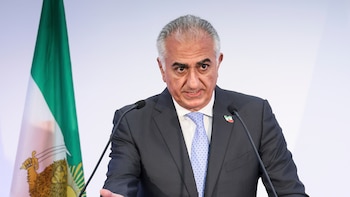
(ATR) The official cost of postponing the Tokyo 2020 Olympics is $2.8 billion.
The organizing committee revealed the numbers as well as how the costs would be shared following a three-party meeting with representatives of the Tokyo Metropolitan Government (TMG) and the government of Japan on Friday.
Tokyo 2020 will be responsible for approximately $989 million in additional costs tied directly to running the Games. The TMG and Japanese government will pay a share of the operating costs as well as sharing the entire expense of coronavirus countermeasures needed to stage the Games.
TMG will be responsible for a total of $1.15 billion, with $768 million going to the operating costs and $384 million to paying for countermeasures.
The Japanese government is on the hook for an additional $682 million, divided into $144 million for operating costs and $538 million for covering the remainder of the tab for the countermeasures.
The final allocation figures could still change with the TMG paying more, according to a statement from Tokyo 2020 president Yoshiro Mori, Tokyo governor Yuriko Koike and Seiko Hashimoto, minister in charge of the Tokyo Olympic and Paralympic Games.
"In the event Tokyo 2020 is not able to cover any of the costs allocated to it by means of revenue growth, the Tokyo Metropolitan Government will bear those costs."
The $2.8 billion price tag was widely reported earlier this week by Japanese media.
The IOC has said it will pitch in about $650 million to help cover the cost of the postponement.
Before the delay was announced, the official cost of putting on the Games was supposed to be $12.6 billion.
The so-called simplification of the Games, in which organizers and the IOC agreed in October to cut spending in 52 areas, is supposed to save $280 million.
Written by Gerard Farek
For general comments or questions,click here.
Your best source of news about the Olympics is AroundTheRings.com, for subscribers only.
Últimas Noticias
Utah’s Olympic venues an integral part of the equation as Salt Lake City seeks a Winter Games encore
Utah Olympic Legacy Foundation chief of sport development Luke Bodensteiner says there is a “real urgency to make this happen in 2030”. He discusses the mission of the non-profit organization, the legacy from the 2002 Winter Games and future ambitions.

IOC president tells Olympic Movement “we will again have safe and secure Olympic Games” in Beijing
Thomas Bach, in an open letter on Friday, also thanked stakeholders for their “unprecedented” efforts to make Tokyo 2020 a success despite the pandemic.

Boxing’s place in the Olympics remains in peril as IOC still unhappy with the state of AIBA’s reform efforts
The IOC says issues concerning governance, finance, and refereeing and judging must be sorted out to its satisfaction. AIBA says it’s confident that will happen and the federation will be reinstated.

IOC president details Olympic community efforts to get Afghans out of danger after Taliban return to power
Thomas Bach says the Afghanistan NOC remains under IOC recognition, noting that the current leadership was democratically elected in 2019. But he says the IOC will be monitoring what happens in the future. The story had been revealed on August 31 in an article by Miguel Hernandez in Around the Rings

North Korea suspended by IOC for failing to participate in Tokyo though its athletes could still take part in Beijing 2022
Playbooks for Beijing 2022 will ”most likely” be released in October, according to IOC President Thomas Bach.




